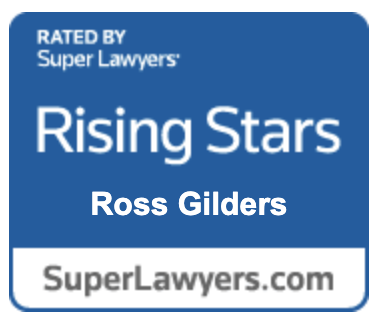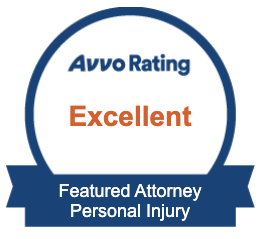How Does Product Liability Effect Petosky Residents?
- Aug 1, 2024
- 5 min read
Updated: Jan 17, 2025

Understanding product liability law is crucial for both consumers and businesses. Consumers need to know their rights and the protections available to them if they encounter a defective product. At the same time, companies must understand their responsibilities and the potential legal repercussions of failing to ensure product safety.
Petoskey, Michigan, is no exception when it comes to product liability law. As a popular tourist destination, the city sees a lot of consumer activity, and businesses must be well-informed about their legal obligations.
This Michigan legal guide aims to provide a comprehensive overview of Petoskey’s legal framework governing product liability, shedding light on this complex area of law to benefit both consumers and businesses.
Understanding Product Liability in Petoskey
Product liability refers to a manufacturer, seller, distributor, or retailer’s responsibility for placing a faulty product into the hands of a consumer. This liability can arise from various defects, categorized into three main types.
Design Defects
Design defects are inherent flaws in a product’s design that make it unsafe. Even if the product is manufactured correctly, a design defect will make the product dangerous to use. For example, a child’s toy with small detachable parts that kids can easily swallow would have a design defect.
Manufacturing Defects
Manufacturing defects occur during the construction or production of an item. While the design might be safe, errors during the manufacturing process can render a product hazardous. For instance, a batch of medication that becomes contaminated during production would have a manufacturing defect.
Marketing Defects or Failure To Warn
Marketing defects involve improper instructions or failures to warn consumers about a product’s potential risks. Even well-designed and correctly manufactured products can be dangerous without adequate warnings or instructions. For instance, a prescription medication that does not disclose its possible side effects would have a marketing defect.
Legal Framework Governing Product Liability in Petoskey
Michigan law and federal regulations shape the legal landscape of product liability in Petoskey. These laws work in tandem to ensure consumer protection and establish business guidelines.
Michigan Consumer Protection Act
The Michigan Consumer Protection Act (MCPA) plays a significant role in product liability cases. It protects consumers from unfair, unconscionable, or deceptive business practices and provides a legal avenue for consumers to seek redress. The MCPA empowers consumers to file lawsuits against businesses that violate their rights, including those regarding product safety.
Michigan Compiled Laws
Specific sections of the Michigan Compiled Laws outline the legal requirements for product liability claims in Michigan. These laws establish that a product must be reasonably safe and fit for its intended use. If not, the manufacturer or seller can be held liable for any injuries caused by the product.
Some of the provisions in the Michigan Compiled Laws that pertain to product liability include:
MCL 600.2945: This section defines legal terms related to product liability, such as “product” and “gross negligence.”
MCL 600.2946: This section outlines what type of evidence is admissible in a product liability action.
MCL 600.2946a: This section establishes the limitations of damages in product liability claims.
MCL 600.2947: This section sets the liability of manufacturers, sellers, distributors, or retailers in a product liability case.
Federal Regulations and Standards
Federal regulations — including those enforced by agencies like the Consumer Product Safety Commission (CPSC) — set safety standards for various products. Compliance with these standards is crucial for businesses to avoid liability. Failure to adhere to federal regulations can result in a product being deemed unsafe, leading to legal consequences for companies.
Key Concepts in Product Liability Cases
Product liability cases can hinge on several legal concepts, including strict liability, negligence, and warranties.
Strict Liability vs Negligence
Strict liability holds manufacturers and sellers accountable for defective products, regardless of fault or intent. In contrast, negligence requires proving that the defendant failed to exercise reasonable care in the product’s design, manufacture, or marketing. In product liability cases, strict liability is often the preferred legal theory because it does not require proving fault on the defendant’s part.
Warranties and Guarantees
Warranties play a critical role in product liability cases.
Express Warranties: These are explicit promises made by the seller about the quality or functionality of the product. Often included in the product’s packaging or marketing materials, express warranties can be admissible as evidence to support a product liability claim.
Implied Warranties: These are guarantees that the law assumes to be inherent in every sale, even if not explicitly stated. The two types of implied warranties include the “implied warranty of merchantability,” which guarantees a product is fit for its intended use, and the “implied warranty of fitness for a particular purpose,” which promises the product is suitable for a specific use known to the seller.
If a product fails to meet these implied warranties, the seller can be held liable for damages.
Common Defenses in Product Liability Cases
Defendants in product liability cases often use several defenses, such as arguing that the plaintiff misused the product, the product was altered after it left the defendant’s control, or the statute of limitations expired.
The Balance Between Consumer Protection and Business Responsibility
Product liability laws aim to strike a balance between protecting consumers’ safety and holding businesses accountable for their products. While consumer protection is essential, so is promoting a thriving business climate in Petoskey.
Importance of Consumer Protection
Consumer protection ensures that products are safe and provides legal recourse for those injured by defective products. Victims of product defects may suffer severe physical, emotional, and financial harm, and consumer protection laws help them seek compensation for their losses.
Consumer protection urges manufacturers to prioritize safety and transparency. It also promotes consumer confidence, ultimately benefiting businesses.
Responsibility of Businesses
Businesses are legally responsible for ensuring that their products are safe for consumers through careful design, manufacturing, and marketing. This responsibility includes adhering to federal regulations and industry standards, properly testing products before release, and providing clear warning labels for potential hazards. By fulfilling these responsibilities, businesses can keep consumers safe, prevent potential product liability claims, and maintain their reputation for providing quality products.
Steps for Consumers To Take in a Product Liability Case
If you encounter a defective product, follow these steps to protect your rights:
Identifying a Defective Product: Recognize signs of defects in design, manufacturing, or marketing.
Documenting Injuries and Damages: Keep detailed records of injuries, medical treatments, and related expenses.
Seeking Legal Counsel: Consult an experienced Petoskey attorney specializing in product liability to understand your legal options.
Understanding the Process: Familiarize yourself with the steps in filing a product liability claim, from initial consultation to potential court proceedings.
Tips for Businesses To Mitigate Product Liability Risks
Businesses can take proactive measures to reduce the risk of product liability claims.
Implementing Robust Quality Control Measures: Ensure consistent quality and safety standards throughout production.
Keeping Detailed Records: Maintain comprehensive documentation of design, manufacturing, and marketing activities.
Staying Informed About Legal Requirements: Regularly update your knowledge of relevant laws and industry standards to ensure compliance.
Providing Clear Warnings and Instructions: Supply adequate warnings and instructions to inform consumers about potential risks and proper product use.
Final Thoughts
Understanding product liability in Petoskey is essential for both consumers and businesses. It ensures consumer protection and establishes clear business duties, promoting a safer marketplace. By staying informed about their rights and responsibilities, individuals and companies can effectively navigate the complexities of product liability law.
If you have encountered a defective product, seeking legal advice from a reputable Petoskey attorney who can guide you through the legal process and help you seek compensation for your losses is crucial. Contact us today for a consultation.







